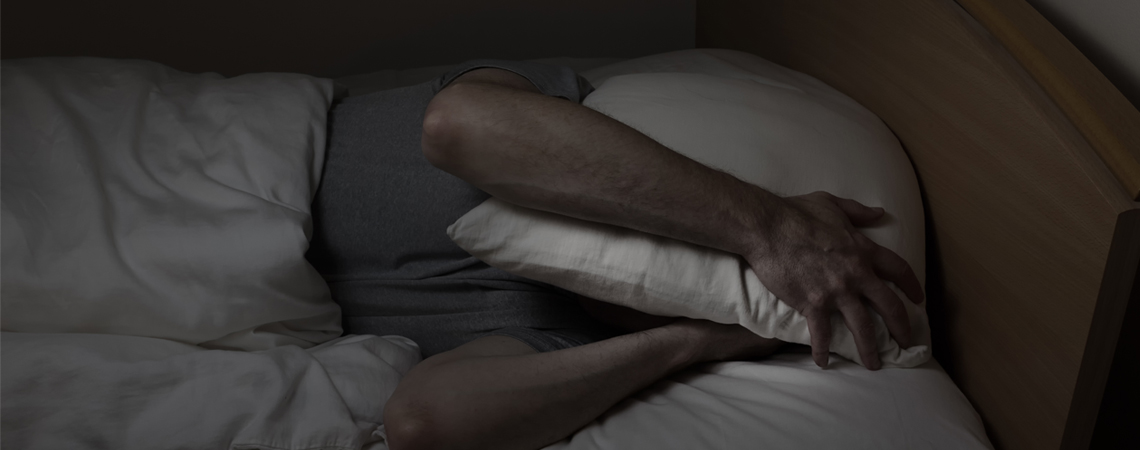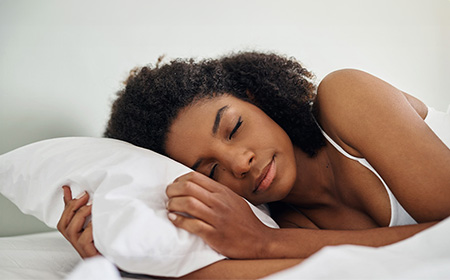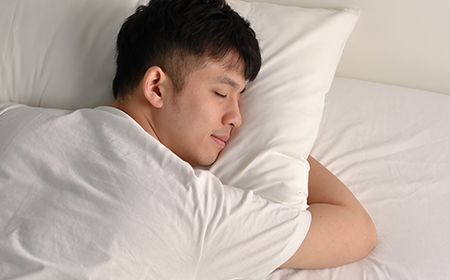You haven't noticed during the day but now, when it's time to sleep, the sound of the dripping tap is terribly loud. If you recognise this, you know that noise has a massive effect on your ability to sleep. Your ability to stay asleep is also affected by noise, for instance, when you wake with a jolt in the night only to discover that the "thunderstorm" is really just a snoring noise from your partner.
We all react differently to different kinds of noise. Whereas traffic noise may not bother city dwellers, the sound of running engines and honking horns will keep villagers wide-awake. Unusual noises like the neighbour's partying late into the night will keep most people up, and luckily the same goes for the sound of the smoke alarm, even if you are sound asleep.
However, silence can also be a challenge to some people: If you are used to relaxing sounds maybe from other people chatting, it will surely keep you awake if that sound is missing. So the type and the level of noise are both important as well as personal preferences. Noise tends to be most disruptive right before you go to sleep, and in recurring periods during the night when you go through lighter stages of sleep. Here are 4 sound absorbing tips for the insomniac:
1. Keep noise out of the bedroom
Keep your windows closed - it will limit noise from outside. Then add a few rugs to your bedroom and thick curtains to your windows. This will help soften noise from outside and the rest of the house.
Also, be sure to turn off all electronics before you turn in for the night to avoid any sounds.
2. Listen to relaxing sounds or white noise for sleep
If you can't control the noise around you, try earplugs. They are affordable, and after a while you get used to them – just make sure that they're soft and flexible. They will muffle the noise around you so that you can fall asleep.
If they don't help, try downloading an app with white noise for sleep. White noise can help to block surrounding noises and provides nonstop, soothing sounds that can help you fall asleep. Put in your earbuds, open the app, and let the fuzzy, static sound take you to dreamland.
If white noise is not for you, then maybe more familiar sounds are. The sound of crashing waves, rain gently falling or leaves rustling in the autumn wind. You can also find smartphone apps that provide these types of relaxing sounds.
3. Don't let the noise bother you
Focusing on the noise is actually the worst thing that you can do - so don't! Instead, accept that there is noise around you, and then make a deliberate choice to ignore it. If you know the principles of mindfulness, this is not new to you: Recognise and accept your thoughts, your physical sensations and your surroundings.
4. Relax your mind and body
Breathing is key: Focusing on the rhythm of your breathing can help you relax and distract you from any noise. Either try the 4-7-8 technique -breathe in through your nose for 4 seconds, hold your breath for 7 seconds, and exhale through your mouth for 8 seconds - or try concentrating on your breath and the feeling of your chest rising and falling.
Even noises that don't wake you completely can have a negative effect on your sleep quality. Your brain continues to register and process sound during your sleep, and noise can create uneasiness even if you don't wake fully. These interruptions affect your sleep quality, so if you have trouble sleeping for a longer period, talk to a professional. Sleep tight!
Sources
https://sleep.org/articles/sleep-in-noisy-environments/
https://www.ressleep.com.au/articles/having-trouble-sleeping-due-to-noise-tips




